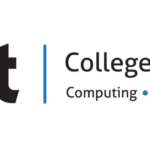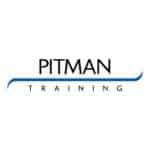Almost universally lauded as one of the industries with the highest growth potential in Ireland, digital media is the magpie of modern commerce, incorporating exciting elements from the worlds of web design, gaming, social media, marketing, mobile applications, animation, sound production and film into a single thriving sector.
It is this very dynamism and vitality that has led many to believe that creative digital media will be at the forefront of Ireland s knowledge economy. Traditional outlets of information and entertainment such as TV, radio, books, newspapers and even gaming have all undergone digital transformations a clear recognition of the huge changes already well underway.
Digital products and services are continually growing in popularity because they offer customers greater choice, accessibility, immediacy and interaction. Naturally, this demand brings more employment opportunities for those well placed enough to take advantage of them.
However, digital media not only acts as an outlet for capital-based business ventures; it is now also a vibrant new platform for artists, storytellers, musicians and communicators.
What’s involved
Because the digital media industry holds so much promise, many younger learners are being encouraged to get involved at the early stages. Film and Animation summer camps for teens allow them to do so through. These will cover aspects of digital media such as film, photography and animation and are generally aimed at those between the ages of 12 and 16.
Those with an interest in TV and film would be well served by a course in Digital Movie Processing or Digital Video Editing. Students on such programmes will learn how to skillfully edit professional quality digital videos (generally using an editing tool such as Avid Media Composer), including project setup, capturing, importing, transitions, basic FX and exporting. Some such options will award students with a FETAC-accredited (level 5) Certificate in Digital Movie Processing upon completion.
For those looking to apply their digital media skills to use within a business framework, it is possible to complement the area with another subject at both undergraduate and postgraduate level. One such option is the BA in Marketing and Digital Media. Subjects covered on such degree-level programmes include Digital Planning and Management, Digital Marketing Tools and Business Strategy. Part-time degree level programmes generally run for a period of four years. Graduates can augment this with a two-year MSc in Marketing and Digital Media, which will equip students with the knowledge and skills needed at senior-level positions in the ever-changing digital environment.
It is also possible to study for more digital-centred masters degrees. An MSc in Applied Digital Media (18 months, part time) will qualify students to work as designers and creative directors in a variety of cross-disciplinary industries (e. g. publishing and the creative arts). They will also be able to work effectively in the creative media industry, as well as act as valuable contributors to multimedia projects that involve cross-media content and platforms.
While Digital Media courses are typically broad in scope, another option for students is to enrol on shorter, more specific programmes that may be relevant to their own particular field of interest. For example, part-time courses in using Photoshop or Flash will teach students how to create interactive content, high-quality typography, flexible layouts and smooth animations. Both programmes can be taken online.
Digital publishing is another area that is of interest to many people. A Diploma in e-Book Publishing will introduce participants to the essentials learning how to publish online and make their work available for digital download (on iPad, Kindle, etc. ). All of the elements are covered from finding and refining an idea, to managing the creative process, to editing, subbing and signing off on the final draft. The next stage focuses on getting the distribution and developing a social media marketing campaign.
Why do it
Digital Media has a growing influence on people s lives: it is used as an assist to work, travel, entertainment, study and a host of common, everyday activities. Those with training in Digital Media will be central to Ireland s attempts to establish a knowledge economy that produces interactive digital technologies.
Studying Digital Media will also allow those with a creative impulse a new means (or several of them) of self-expression.
What comes next
The career options are varied and include content/information managers, industrial and academic research, multimedia systems developers, innovative media practitioners, web designers, game designers and entrepreneurial endeavour.
At a glance
Digital Media courses incorporate a range of disciplines such as design, programming, film, animation and gaming. Shorter courses in Digital Media can last for between one week and several months. Part-time degree-level Digital Media programmes last for four years while part-time masters-level Digital Media courses are typically of 18 months to two years in length.














